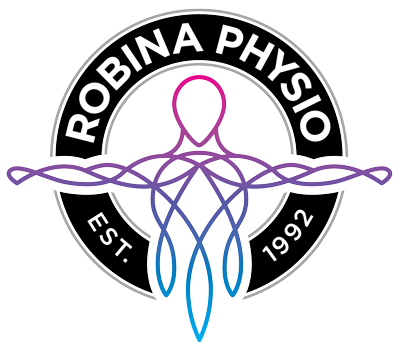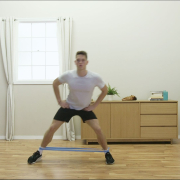ACL Physio
Understanding ACL Physio
By Aaron Woolley, Physiotherapist. Robina Physio, Gold Coast.
What is ACL Physiotherapy?
ACL physio rehabilitation is a specialised form of treatment targeting the anterior cruciate ligament (ACL) and associated injuries such as the meniscus. The ACL is one of the key ligaments that help stabilise the knee joint. Athletes, due to the demanding nature of their sports, are particularly susceptible to injuries of this ligament. Effective ACL physiotherapy similar to that provided at Robina Physio on the Gold Coast can help prevent long-term damage and aid in a full recovery, enabling athletes to return to their peak performance levels.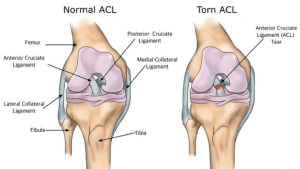
How Do ACL Injuries Happen?
ACL injuries often occur when the knee is subjected to excessive stress, causing the ligament to stretch beyond its capacity. This overstretching can lead to partial or complete tears. These injuries typically result from sudden movements, such as:
- Pivoting: Changing direction rapidly while the foot is firmly planted.
- Jumping and landing: Improper technique or landing awkwardly from a jump can place immense strain on the ACL.
- Decelerating suddenly: Coming to a quick stop while running can also stress the ligament.
- Direct impacts: Although less common, direct blows to the knee (such as those sustained in contact sports) can also cause ACL injuries.
High-Risk Activities for ACL Injuries
Certain sports and activities place individuals at a higher risk of sustaining ACL injuries. This is particularly true for sports that require frequent pivots, jumps, and sudden changes in direction. Some high-risk activities include:
- Football Codes (AFL + Rugby): The 360-degree nature of the game, combined with high-intensity movements, makes players particularly vulnerable.
- Soccer: Frequent cutting, pivoting, and sudden stops put significant stress on the ACL.
- Netball: Similar to soccer, netball involves rapid direction changes and jumps.
- Basketball: Jumping, landing, and quick directional changes are inherent in the sport.
Recognising the Symptoms of an ACL Tear
Recognising the symptoms of an ACL injury early can significantly improve the outcome of treatment. Common symptoms include:
- A popping sensation: Many individuals report hearing or feeling a pop at the time of injury.
- Knee instability: The knee may feel unstable or as if it is giving way.
- Immediate pain: Severe pain can occur right after the injury.
- Swelling: Swelling usually develops within 1-4 hours post-injury.
- Difficulty walking: Bearing weight on the affected leg can be challenging.
- Loss of range of motion: The knee may feel stiff and unable to move fully.
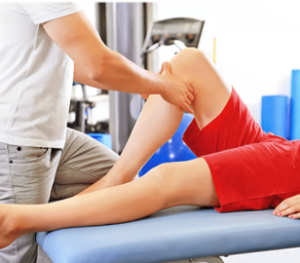
Risk Factors for ACL Tears
Understanding the risk factors for ACL injuries can help in prevention. Common risk factors include:
- Female gender: Women are more prone to ACL injuries due to differences in anatomy, muscle strength, and hormonal influences.
- Age: Individuals aged 15 to 45 are at a higher risk, as this age range often involves high levels of physical activity.
- Sports involving pivoting, cutting, or stepping: Activities that require these movements increase the likelihood of ACL injuries.
- Inappropriate footwear: Wearing shoes that do not fit properly or are not suited for the activity can contribute to ACL injuries.
- Previous ACL injuries: Having had an ACL injury previously increases the risk of recurrence.
Types of ACL Injuries and ACL Physio Treatment
ACL injuries are classified based on the severity of the ligament damage. Treatment varies accordingly:
- Grade I ACL Sprain
- The ligament is stretched but not torn.
- Symptoms: Mild pain and redness; knee remains stable.
- Treatment: Rest, anti-inflammatory medication, ice, and possibly crutches for support. ACL physiotherapy can speed up recovery, typically taking 1-2 weeks.
- Grade II ACL Sprain
- The ligament is partially torn.
- Symptoms: Moderate swelling and tenderness; knee may feel like it could collapse with use.
- Treatment: Knee braces, rest, ice, and anti-inflammatory medication. Surgery may be considered based on the individual’s lifestyle and severity of symptoms. ACL physiotherapy helps regain strength and mobility. Recovery can take 4-12 weeks.
- Grade III ACL Sprain
- The ligament is completely torn.
- Symptoms: Severe pain and swelling; knee instability.
- Treatment: Reconstructive surgery is often necessary, especially for athletes. Post-surgery, crutches or knee braces are needed during early recovery stages. ACL physiotherapy is crucial for rehabilitation, which can take 6-18 months.
How Often Will I Need to See an ACL Physio?
The frequency of seeing an ACL Physio at Robina Physio on the Gold Coast will depend on the severity of the injury and individual progress. Typically:
- First 6-8 weeks: 1-2 sessions per week.
- Following months: Sessions reduce to fortnightly, then monthly as progress is made.
Factors Influencing Recovery Time
Several factors can influence the recovery time for an ACL injury:
- Age: Younger individuals may heal faster due to better regenerative capabilities.
- Severity of the injury: More severe injuries take longer to heal.
- Activity level: Active individuals may require a more intensive rehabilitation program.
- Physical condition: Overall health and fitness levels can affect recovery speed.
- Desired outcomes: The patient’s goals, such as returning to high-level sports, will influence the rehabilitation plan.
Returning to Sports After an ACL Tear
Returning to sports after an ACL injury is a significant milestone and should be approached carefully. The timeline for returning to sports is usually:
- 9-12 months post-injury: This is the typical timeframe, but it can vary based on individual recovery and the severity of the injury.
- Milestone-based: Rather than a fixed timeline, returning to sports is based on achieving specific rehabilitation milestones.
Before an athlete can return to their sport, a physiotherapist will perform several tests to ensure readiness. These tests include:
- Strength tests: Ensuring the knee and surrounding muscles are strong enough.
- Agility tests: Assessing the ability to move quickly and change direction.
- Hop tests: Evaluating the ability to jump and land safely.
Preventing ACL Injuries and Seeking an ACL Physio
Preventing ACL injuries involves proper training, technique, and equipment. Some preventive measures include:
- Proper footwear: Wearing shoes that fit well and are appropriate for the sport.
- Strength training: Focusing on strengthening the muscles around the knee.
- Technique training: Learning and practicing proper techniques for movements like jumping and landing.
- Consulting professionals: Regular check-ups with physiotherapists can help identify and correct potential issues before they lead to injury.
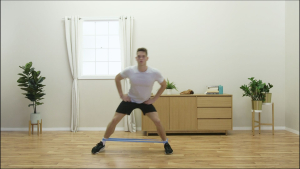
Image from Vald Telehab.
For personalised advice and treatment, reaching out to an ACL injury physiotherapist in Gold Coast like Robina Physio on the Gold Coast is highly recommended. These professionals can provide tailored rehabilitation programs and preventive strategies to help keep your knees healthy.
Conclusion
ACL injuries/tears are common among athletes but with the right treatment and physiotherapy, full recovery is possible. Understanding the causes, symptoms, and treatments of ACL injuries can help individuals take proactive steps towards prevention and effective recovery. For those in the Gold Coast area, specialised physiotherapists are available at Robina Physio on the Gold Coast to guide you through your recovery journey, ensuring you return to your sport stronger and more resilient.
For more information about ACL tears, surgery, and recovery, contact the experienced Gold Coast Physio team at Robina Physio. We’re here to support you every step of the way on your journey to recovery.
If you have recently sustained an ACL Injury or struggling with ongoing Knee Pain and instability visit our expert physiotherapists at Robina Physio on the Gold Coast and getting running pain free again. Don’t hesitate to Contact Us on (07) 5578 7233 or BOOK ONLINE.
